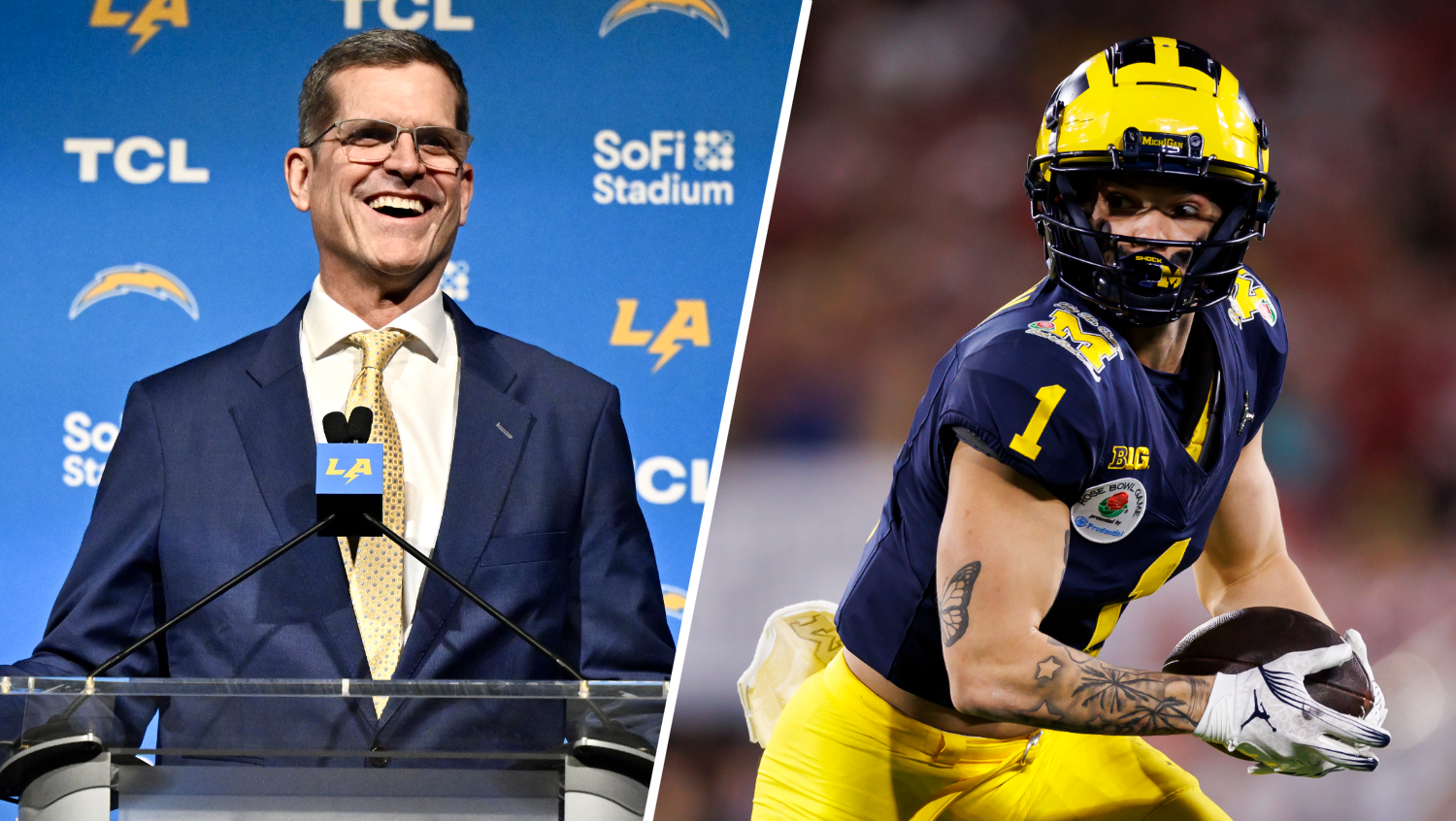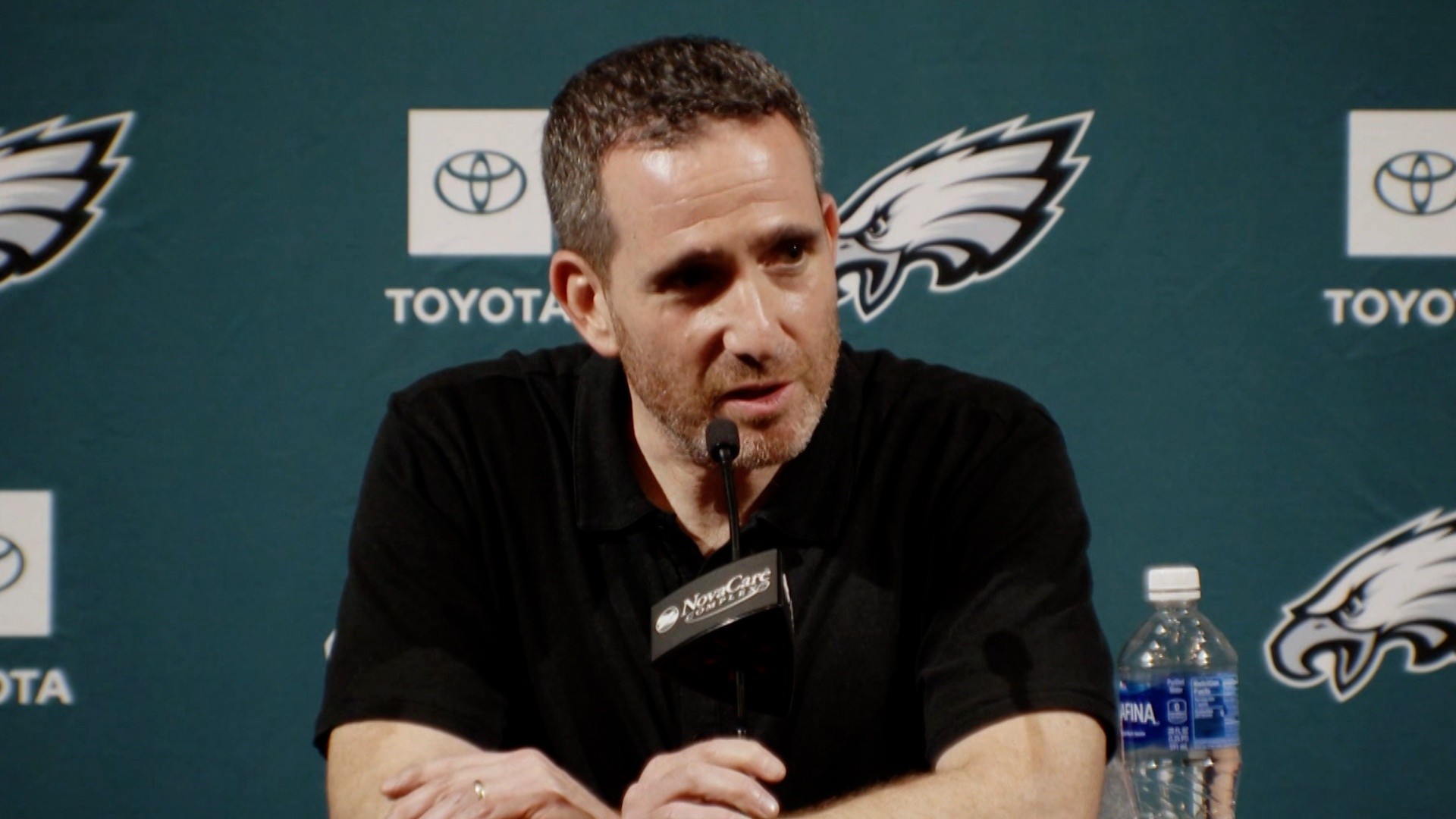Carson Wentz is not the same person he was when he got here.
Not even close.
And this has nothing to do with reading defenses, pocket awareness or accuracy.
Stay in the game with the latest updates on your beloved Philadelphia sports teams! Sign up here for our All Access Daily newsletter.
Wentz has transformed from a wide-eyed and naive 23-year-old kid from Bismarck who just wanted to play football into an enlightened 27-year-old who’s outraged by racial inequality, appalled by oppression and hate and figuring out how to make a difference.
Amidst the protests that athletes in all sports have sparked this week, Wentz spoke Thursday about his own personal journey from someone who was barely aware of racism just a few years ago into a person who is deeply committed to fighting for social justice.
"There's hurting in this world," he said. "For me as a follower of Christ, looking at His example through the Bible, he ran to the people that were oppressed, he ran to those that were hurting. And that's our example. That's my example. That's who I look to. How can I show empathy and how can I reach out to those that are oppressed and hurt? I don't have all the answers, don't have the solutions, but I have a voice that I can share where there needs to be a voice, and I have ears that can listen and truly care when there's hurt going on.”
When you’re a star quarterback, you have a unique platform, and Wentz takes that very seriously.
NFL
Wentz said until recently he really didn’t know what racism was and how widespread it is in society.
He admitted he chose not to learn about it.
“It's been a lot of learning and a lot of conviction on my heart, honestly,” he said. “Growing up in North Dakota … it's something that's kind of new and it's something that I've chosen to kind of just overlook and look past it. I went to high school, I think I had just a couple Black classmates. And it's something that was so foreign to me. And so now really, this offseason, I took a real look into showing empathy and understanding what has it been like to be a Black man in this world, in this country, and not just in today's world, but going back 400 years to now, and how we got to this point.”
It’s been a remarkable few days in the sports world, with teams in every sport choosing to postpone practices and games in order to promote a dialogue about racism and draw attention to several important issues facing society today.
Doug Pederson canceled the Eagles’ planned team meetings Wednesday night and instead held an open forum about race with several players sharing their thoughts and experiences.
“A lot of guys, myself included, have heavy hearts,” Wentz said. “There's a lot of hurt in this world. A lot of evil in this world. A lot of guys showing empathy. A lot of guys personally are hurt or affected and so, just the open dialogue is healthy. We always talk about a family, we always talk about a brotherhood in the locker room, but just establishing that, ‘Hey guys, this isn't just about football. This is about off the field, this is about caring for each other's families and friends and as true brothers.’ … Just understanding each other's perspectives is a great place to start.”
There will be people who read this story or hear about Wentz’s transformation and roll their eyes and declare that he’s here to play football, not share his views on social justice, police brutality and racism.
Wentz knows it’s coming and he’s ready for it.
“Everyone has their own opinion and is entitled to that opinion,” he said. “But at the end of the day, athletes have a unique platform, have the ability to reach a lot of people that usually wouldn't get reached, and have a voice to speak for the communities that are oppressed and whatever different causes are near and dear to each guy's heart. And right now with everything going on in our world, this is what's at the forefront. For guys to just sit back and not speak out, it would probably come across as insensitive and not caring about this world. We can't just sit by and stay idle. … It’s something that we can start addressing publicly and creating those conversations and education so that we can begin the process of healing and the process of creating change in this country that is much needed.”
Wentz is here to play football and try to lead the Eagles to a Super Bowl.
But fighting for social justice has become deeply meaningful for him.
This is who he is now.


